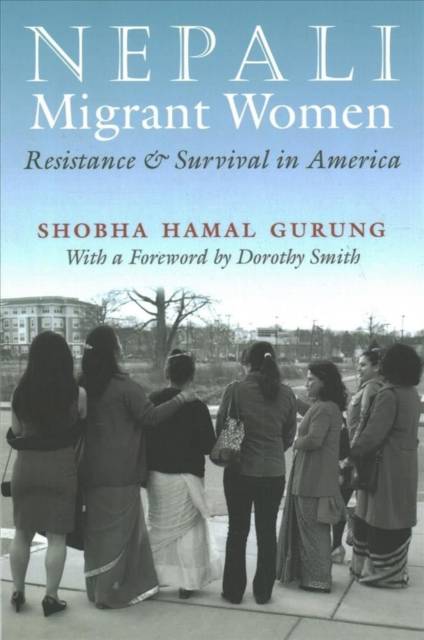
- Afhalen na 1 uur in een winkel met voorraad
- Gratis thuislevering in België vanaf € 30
- Ruim aanbod met 7 miljoen producten
- Afhalen na 1 uur in een winkel met voorraad
- Gratis thuislevering in België vanaf € 30
- Ruim aanbod met 7 miljoen producten
Zoeken
€ 33,95
+ 67 punten
Uitvoering
Omschrijving
In this pathbreaking and timely work, Hamal Gurung gives voice to the growing number of Nepali women who migrate to the United States to work in the informal economy. Highlighting the experiences of thirty-five women, mostly college educated and middle class, who take on domestic service and unskilled labor jobs, Hamal Gurung challenges conventional portraits of Third World women as victims forced into low-wage employment. Instead, she sheds light on Nepali women's strategic decisions to accept downwardly mobile positions in order to earn more income, thereby achieving greater agency in their home countries as well as in their diasporic communities in the United States. These women are not only investing in themselves and their families--they are building transnational communities through formal participation in NGOs and informal networks of migrant workers. In great detail, Hamal Gurung documents Nepali migrant women's lives, making visible the profound and far-reaching effects of their civic, economic, and political engagement.
Specificaties
Betrokkenen
- Auteur(s):
- Uitgeverij:
Inhoud
- Aantal bladzijden:
- 216
- Taal:
- Engels
- Reeks:
Eigenschappen
- Productcode (EAN):
- 9780815637127
- Verschijningsdatum:
- 23/03/2021
- Uitvoering:
- Paperback
- Formaat:
- Trade paperback (VS)
- Afmetingen:
- 196 mm x 226 mm
- Gewicht:
- 272 g

Alleen bij Standaard Boekhandel
+ 67 punten op je klantenkaart van Standaard Boekhandel
Beoordelingen
We publiceren alleen reviews die voldoen aan de voorwaarden voor reviews. Bekijk onze voorwaarden voor reviews.











